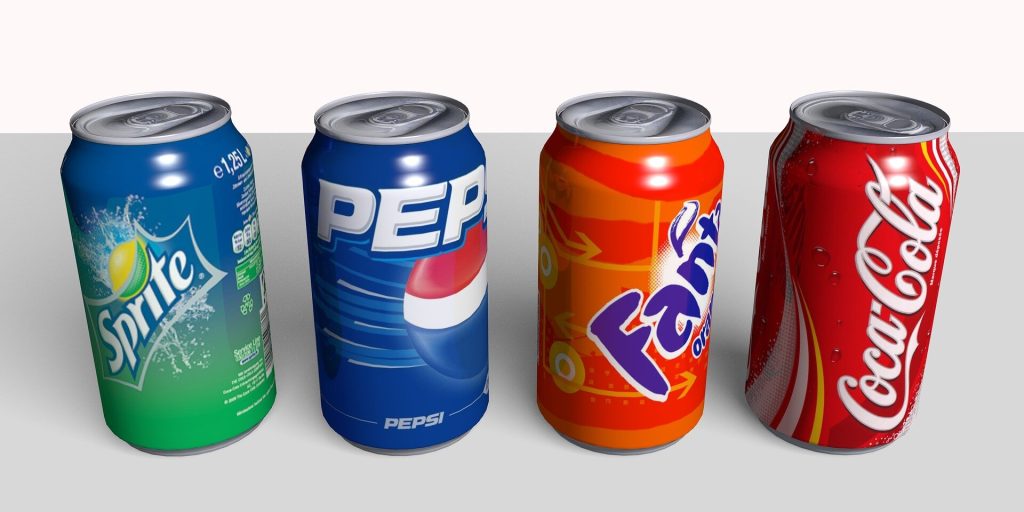Credit: Pixabay/CC0 Public Domain
Researchers from University of North Carolina at Chapel Hill and University of Amsterdam have conducted a new study that examines how sugar reduction strategies affect new product sales. The article, published in the Journal of Marketing, is titled “A War on Sugar? Effects of Reduced Sugar Content and Package Size in The Soda Category,” and is authored by Kristopher O. Keller and Jonne Y. Guyt.
The United States has a sugar problem. Excessive sugar consumption induces severe illnesses that increase health care costs. Not surprisingly, about 58% of U.S. adults indicate a desire to cut back on sugar to avoid obesity, diabetes, and heart conditions. Research shows that reducing sugar in consumer-packaged goods by a modest 8%–10% could lead to nationwide savings of more than $110 billion in health care costs.
Keller explains that “despite clear evidence of the negative consequences of sugar consumption, consumers’ intake has steadily increased over the years. This suggests that it is not sufficient for consumers to want to decrease their sugar intake. Companies need to offer appealing products that can help reduce sugar consumption.”
Soda manufactures such as PepsiCo have been reducing sugars in their products over the years and are increasingly launching smaller package sizes of well-known sugar products to appeal to health-conscious consumers. However, soda companies have to strike a delicate balance between sugar reduction and protecting and increasing their sales—two motives that will conflict if consumers reject reduced-sugar alternatives. As the war on sugar rages on, soda manufacturers seek to find the best solution to maintain sales without harming society.
Sugar reduction or package size reduction?
The researchers examine two sugar-reduction efforts:
- Sugar content reduction that involves launching a new product that contains less sugar (or no sugar) compared to current products. This tactic is currently being implemented by all major players in the soda sector. For example, in 2011 PepsiCo introduced a new product called Pepsi Next, which contains about half the amount of sugar of Pepsi’s regular products.
- Package size reduction that involves brands introducing smaller package sizes that help consumers cut back on their sugar intake. The brand’s average (relative) sugar content remains the same, but consumers’ absolute intake diminishes. Prominent use of this tactic appeared in the introduction of 7.5-ounce sizes by many soda brands.
The study examines the direct effects of these sugar-reduction strategies while also proposing that their effectiveness depends on three sets of product-related strategy decisions involving labeling, branding, and packaging. These decisions have important moderating effects on how the sugar reduction strategy affects sales.
- First, with respect to labeling, brand manufacturers must decide whether to feature claims of the presence or absence of (un)healthy ingredients, which can signal enjoyment and/or healthiness. For example, Pepsi emphasizes enjoyment and highlights the use of sugar in some cases (e.g., “Made with Real Sugar”), whereas Mountain Dew has highlighted the absence of sugars in several others (e.g., “Zero Sugar”).
- Second, branding decisions determine whether reduced sugar products are launched under a mini or diet sub brand or the main brand. For example, Coca-Cola recently launched zero-sugar products under the Coca-Cola name, not a sub-brand such as Coke Zero.
- Third, packaging decisions, such as the number of products per pack, also matter. Single items limit consumption, which is consistent with package size reduction, whereas multipacks give consumers stock for continued consumption.
Health vs. enjoyment
The analysis of almost 130,000 product additions by nearly 80 brands over 11 years in the U.S. soda category shows that, on average, sugar content reductions perform comparable to similar, nonreduced products, while smaller package sizes perform better than regular sizes.
It also finds that sugar-reduction efforts work substantially better if they do not overemphasize the reduced sugar content in new additions; that is, sugar reductions perform better without a dedicated sub-brand and with enjoyment-oriented claims rather than health claims. As an example, Coca-Cola’s Zero Sugar product was redesigned in 2021 to closely resemble “regular” Coca-Cola rather than the earlier “Coca Cola Zero.” Package size reductions perform better if presented as a fun, high-quality product rather than a stern, healthy alternative. Using single items rather than multi packs further supports this positioning.
How does sugar reduction contribute to society? “An average package size reduction reduces incremental category sugar sales by more than 20%. With the average soda product being close to 50 fluid ounces in size, there is ample room for product (size) adjustments that can reduce consumers’ average sugar exposure,” says Guyt.
More information: Kristopher O. Keller et al, EXPRESS: A War on Sugar? Effects of Reduced Sugar Content and Package Size in the Soda Category, Journal of Marketing (2023). DOI: 10.1177/00222429231152181
Provided by American Marketing Association
Citation: The war on sugar: How can soda manufacturers reduce sugar in products without endangering sales? (2023, March 15) retrieved 23 March 2023 from https://phys.org/news/2023-03-war-sugar-soda-products-endangering.html
This document is subject to copyright. Apart from any fair dealing for the purpose of private study or research, no part may be reproduced without the written permission. The content is provided for information purposes only.

